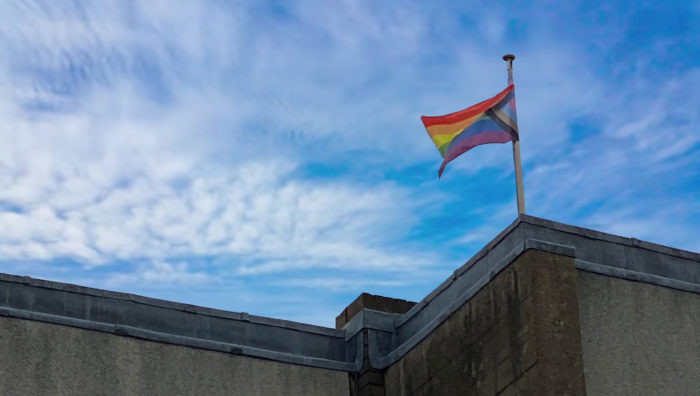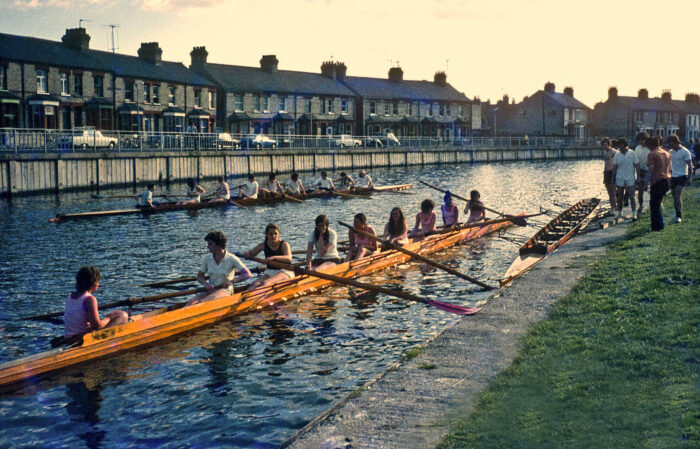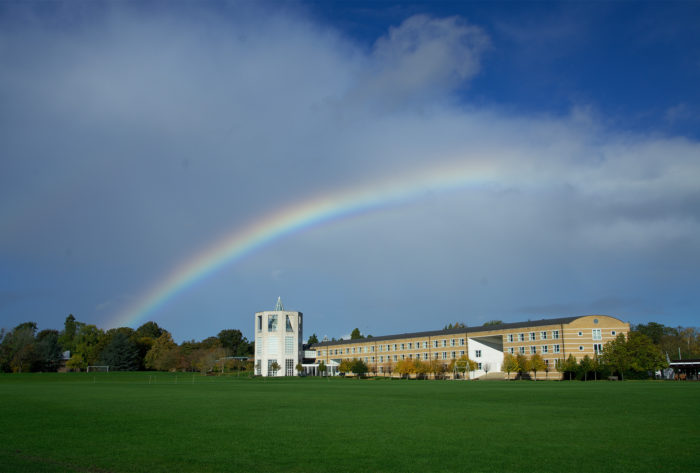Equality, diversity & inclusion
Churchill College strives to be an inclusive environment for students, staff, and Fellows alike.

Churchill College strives to be an inclusive environment for students, staff and Fellows alike.
We recognise there is always more to be done, reflecting on the varied spheres of activity, and for different sections of our community, to achieve this goal. The Equality, Diversity and Inclusion Committee reports to and advises Council, as our Trustee body, on equality, diversity, and inclusion matters throughout the College.
Race Equality
Churchill College is committed to creating a welcoming and inclusive environment for all. While members of our community are drawn from many nationalities we recognise that in terms of ethnic origin our student body, Fellowship and non-academic staff are not as diverse as we would wish.
The College is actively seeking to address under-representation through widening participation activity and a review of staff recruitment practices. We are increasing our provision of staff training and have introduced new ways for all sections of the community to make their voice heard on diversity issues through an anonymous feedback facility.
We want everyone to have a positive experience at Churchill College. Current students have representatives on the JCR and MCR as key Equality & Diversity contacts, who sit on the College’s EDI Committee, chaired by the Master. Our Admissions team’s Widening Participation work seeks to reach and engage students from under-represented and non-traditional backgrounds.
The University of Cambridge has a Black Advisory Hub which has been established to help build a diverse and inclusive community for all students and staff members at the University of Cambridge. It also has a Race Equality Network, a community for staff members who self-identify as being from a racial minority ethnic background and/or who have an interested in the topic of race and would like to contribute to anti-racism initiatives at the University.
For me, the [Black Students Support Fund] speaks to the College’s dedication to encouraging black and ethnic minority students to apply to study at a university where they may currently be under-represented but where the diversity of thought their diversity of background brings is so needed, and to spend their Cambridge years at a college where they will be most warmly welcomed.
Imani Jeffers, 2018 Alumna
Gender Equality
Gender equality has been important to Churchill College since early in the College’s history. Churchill College was in the vanguard of dramatically expanding female participation in Cambridge University: it was the first of the formerly all-male Cambridge colleges to vote to admit women, with the initial cohort of female students arriving in 1972. It is an area of particular interest for our current Master, Professor Dame Athene Donald, who has been actively involved in promoting gender equality for many years, both at a national and University level, acting as the University Gender Equality Champion between 2010 and 2014.
As a College 70% of our students are by statute drawn from the STEM subjects, which are traditionally male dominated. This poses particular challenges in terms of gender equality and the College has been working hard to attract more female applicants. This has resulted in the intake of female undergraduates increasing to 50% in 2020 . The College recognises that there is still more work to do and gender equality will remain a key priority moving forward.

First women’s VIII on the water, 1973. Photo by Roger Shaw (U72)
LGBTQ+ Equality
Churchill College has flown the Pride flag for many years, and now flies the Pride Progress to highlight awareness of and support for the intersectional aspects, both across the letters of LGBTQ, and the + attached to them, and in relation to other minoritized identities, of lived experiences.
We aim to connect the work that student JCR and MCR reps have undertaken over the last years (including the introduction of the gender expression fund) with other sectors of the community: non-academic staff and Fellows. This is partly in response to a University-level surveys highlighting that students and staff identifying as LGBTQ+ often feel isolated. Led by the EDI Committee, we seek to be inclusive of all identities, and support our communities.
Progress should be celebrated, but should never be taken for granted. It needs to be protected and built upon. Our community in the University and the College is global, and some come from parts of the world where there is both legal and social repression for the LGBT+ community. We must be mindful of this. Visibility matters, as signs and symbols say something about what kind of a place this is, but change has to happen structurally and behaviourally.
Andrew Webber, Churchill Fellow and LGBTQ+ Equality Champion
EDI Committee
The EDI Committee is made up of representatives from across the student, staff and Fellows community. It is chaired by the Master, and meets termly to review priorities and set plans to take the College’s equality, diversity and inclusion work forward.
Current members of the ED&I Committee include:
Fellows
- Dr Sam Lambert
- Dr Bobby Reddy
- Mrs Anny King
- Prof. Andrew Webber
Students
- Mr Nihar Lohan / Ms Duaa Elfaki – JCR Equalities Officer
- Ms Thea Fennell – MCR Equalities Officer
Staff
- Mr Michael Doyle
- Mrs Charmaine Millington

Have your say
If you have any comments or suggestions for how Churchill College can do more to be welcoming to all and actively encourage and celebrate diversity, let us know.
Your feedback will be reviewed by the College’s Equality, Diversity and Inclusion Committee and will help inform their work. Please be aware that this facility is entirely separate from the University’s anonymous reporting tool.
Please note that complaints should not be logged here – if you feel you have experienced inappropriate behaviour, bullying or harassment you should raise this through the appropriate complaints procedure. Staff, students and Fellows will have copies of the relevant procedures. If you are an external party with a complaint to make, it should be directed to the Master in the first instance.
